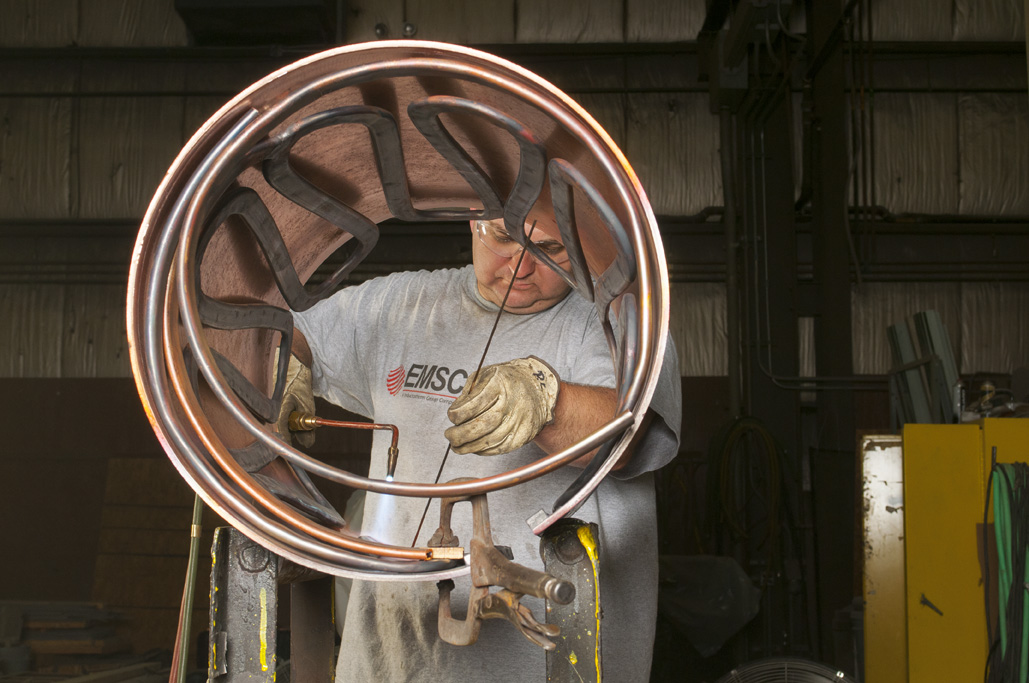Heat Rejection Services for the Melting Industry
April 6th, 2023

Heat rejection services refer to the process of removing the excess heat generated by industrial processes, such as those involved in melting metals and alloys. The melting industry relies heavily on the efficient management of heat rejection to maintain safe operating conditions, ensure product quality, and reduce energy consumption. Ineffective heat rejection services can result in environmental impacts, including increased water usage and wastewater discharge, and greenhouse gas emissions. Optimizing the heat rejection process is essential in the melting industry, as excess heat can cause thermal stress on equipment, increase maintenance costs, and reduce efficiency. With this in mind, the proper selection and design of heat rejection systems, as well as ongoing monitoring and optimization, can enhance the success of the melting industry.
The Importance of Heat Rejection Services in the Melting Industry
Inefficient heat rejection services in the melting industry can have severe consequences for the melting process and overall safety. If excess heat is not removed from the melting process, it can lead to overheating and equipment failure, which can cause significant production downtime and lead to costly repairs. Additionally, improper heat rejection can negatively impact the quality of the final product, resulting in inferior metal or alloy quality, which can be detrimental to the business. Safety risks associated with improper heat rejection services include the risk of equipment failure, fires, and explosions, which can cause significant harm to personnel and lead to production downtime. As such, it is essential for the melting industry to prioritize heat rejection services to ensure optimal production efficiency, product quality, and safety.
Heat Rejection Methods and Equipment Used in the Melting Industry
The melting industry relies heavily on heat as a key component of its manufacturing processes, particularly in metals and alloys. However, this heat must be effectively managed and rejected to maintain safe operating conditions and ensure product quality. Common methods of heat rejection in the melting industry include water-cooling systems, air-cooled systems, and evaporation-based systems. Water-cooling systems use water as a coolant to absorb and transfer heat away from the melting process, while air-cooled systems rely on airflow to dissipate heat. Evaporation-based systems involve specialized fluids that evaporate upon contact with hot surfaces, carrying away heat. Each of these methods has its own advantages and limitations, and the selection of the appropriate heat rejection method will depend on a variety of factors, such as the type of melting process being used, the materials being melted, and environmental factors like temperature and humidity.
Challenges Faced by the Melting Industry in Heat Rejection
High temperatures in the melting industry can have a significant impact on equipment used in heat rejection. Excessive heat can cause thermal stress, leading to deformation, cracking, or failure of equipment components. Furthermore, high temperatures can accelerate corrosion and fouling, which can further degrade the performance of equipment and increase maintenance costs. Corrosion can occur when hot fluids or gases encounter metal surfaces, leading to oxidation and degradation of the material. Fouling, on the other hand, is the accumulation of unwanted deposits on heat transfer surfaces, reducing their efficiency and increasing the energy required for heat rejection. Both corrosion and fouling can be mitigated through appropriate materials, coatings, and cleaning procedures. Regular maintenance and inspection of equipment can also help to identify and address any issues before they become severe. Proper heat rejection services can help the melting industry ensure longevity and efficient operation of equipment.
Best Practices for Optimizing Heat Rejection Processes in the Melting Industry
Some best practices for optimal heat rejection processes in the melting industry include the use of appropriate cooling methods such as water or air-cooling, regular maintenance and inspection of equipment, and proper material selection and coatings to prevent corrosion and fouling. It is important to design and size heat rejection systems appropriately to match the specific requirements of the melting process and to ensure adequate heat transfer capacity. Additionally, proper monitoring and control of temperature, flow rates, and pressures can help to optimize heat rejection process performance and minimize energy consumption. Overall, effective heat rejection services require a combination of proper equipment selection, maintenance, monitoring, and a commitment to ongoing process improvement and optimization.
Conclusion
In conclusion, heat rejection services play a critical role in the melting industry, where high temperatures are used to produce metals and alloys. The effective management of heat is essential for maintaining safe and efficient operations, ensuring product quality, and reducing energy consumption. Optimization of the heat rejection process can help to achieve these goals by designing and implementing effective heat rejection systems and continuously monitoring and optimizing their performance. By selecting appropriate cooling methods, regular maintenance and inspection of equipment, and proper material selection and coatings, the heat rejection process can be optimized, resulting in increased overall operational efficiency, reduced costs, and improved product quality. Therefore, it is essential for the melting industry to prioritize heat rejection services and seek out the best practices for optimizing heat rejection processes. From optimizing the heat rejection process to installing complete melting systems, EMSCO has generations of experience servicing induction melting furnace systems.
Contact us today for more information about our heat rejection processes and other foundry services!




